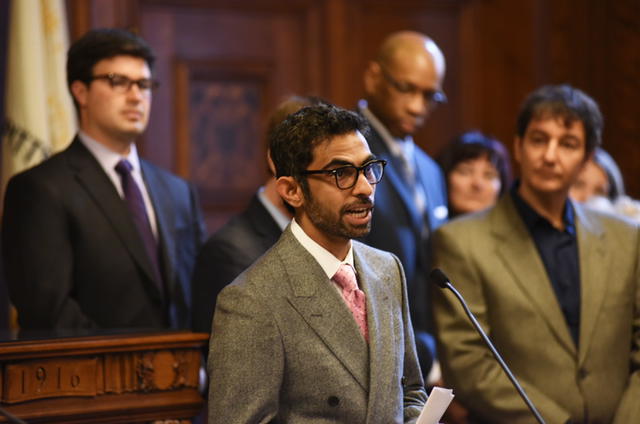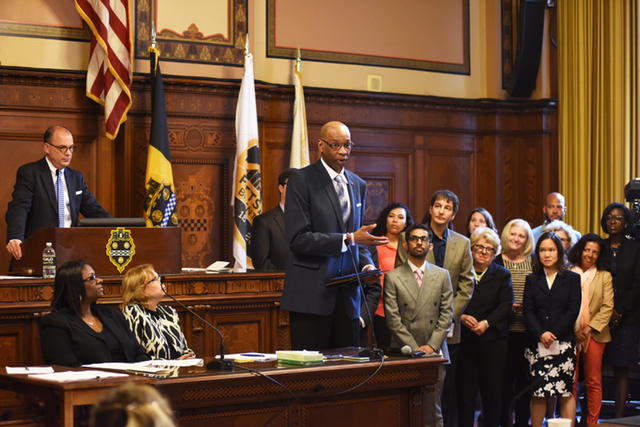Why is HPV Vaccination Important?

— Umamaheswar Duvvuri, MD, PhD, head and neck surgeon, UPMC CancerCenter
HPV is the most common sexually transmitted infection, with a reported 79 million persons age 15–59 in the United States currently infected with HPV, and approximately 14 million new cases diagnosed each year. Although most HPV infections are asymptomatic, transient, and do not cause disease, persistent HPV infection can lead to cervical, vulvar, vaginal, anal, penile, and oropharyngeal cancer.
In the United States, approximately 27,000 HPV-attributable cancers occur each year.
- Cervical cancer is the most common type of HPV-related cancer. Each year, about 12,000 women in the United States get cervical cancer, and it affects 1 in 4 women who are of reproductive age. Someone You Love: The HPV Epidemic, a documentary, tells the story of five women whose lives have been affected by HPV and cervical cancer. Listen to the story of Kristen Forbes, one of the women featured in the documentary.
- Recent epidemiological studies have shown a global trend in increased oropharyngeal cancer incidence. This trend and the documented causal link between HPV and head and neck squamous cell carcinomas present important implications for cancer prevention.
HPV vaccination is an effective primary prevention strategy that can reduce many of the HPV infections that lead to cancer, and is routinely recommended for adolescents age 11–12 years. Currently, there are three available HPV vaccines; bi-valent, Quadra valent, and 9-valent.
Call to Action
During 2012-2013, the President’s Cancer Panel explored the underuse of HPV vaccines and ways to accelerate vaccine uptake. The panel’s annual report provides concrete, targeted recommendations to address barriers to vaccination. These include three goals for accelerating HPV vaccine uptake in the US: reducing missed clinical opportunities to recommend and administer HPV vaccines; increasing parents’, caregivers’, and adolescents’ acceptance of HPV vaccines; and maximizing access to HPV vaccination services.

— John Rhodes, Assistant Coach, Duquesne Men’s Basketball and Oral Cancer Survivor
What are the Guidelines for Vaccination?
The Advisory Committee on Immunization Practices (ACIP) provides advice and guidance to the Director of the CDC regarding use of vaccines and related agents for control of vaccine-preventable diseases in the civilian population of the United States. Recommendations made by the ACIP are reviewed by the CDC Director and, if adopted, are published as official CDC/HHS recommendations in the Morbidity and Mortality Weekly Report (MMWR). Current HPV Vaccine Guidelines are located here.
On October 19, 2016, ACIP recommended updated HPV vaccination guidelines. CDC now routinely recommends two doses of HPV vaccine for 11-or-12-year-olds to prevent HPV cancers:
- The first HPV vaccine dose is routinely recommended at 11-12 years old. The second dose of the vaccine should be administered 6 to 12 months after the first dose.
- Teens and young adults who start the series at ages 15 through 26 years will continue to need three doses of HPV vaccine to protect against cancer-causing HPV infections.
- Adolescents aged 9 through 14 years who have already received two doses of HPV vaccine less than 6 months apart, will require a third dose.
- Three doses are recommended for people with weakened immune systems aged 9-26 years.
The CDC has developed a one-page HPV Vaccine Information Sheet which includes vaccine recommendations, safety, effectiveness, duration of protection, and administration. Access information additional information about the guidelines for vaccination and use of the 9-valent vaccine, tips for increased vaccination, and national coverage data in the Know the Facts section of the CDC website.
Encourage your practice team to learn about the vaccine
The CDC has developed a web-on demand video to provide continuing education about the HPV vaccination to providers, You are the Key to Cancer Prevention. Information about continuing education credits (available until April 21, 2018) is detailed here.

